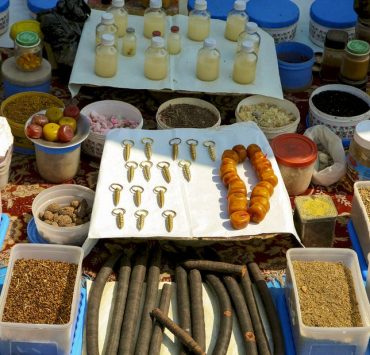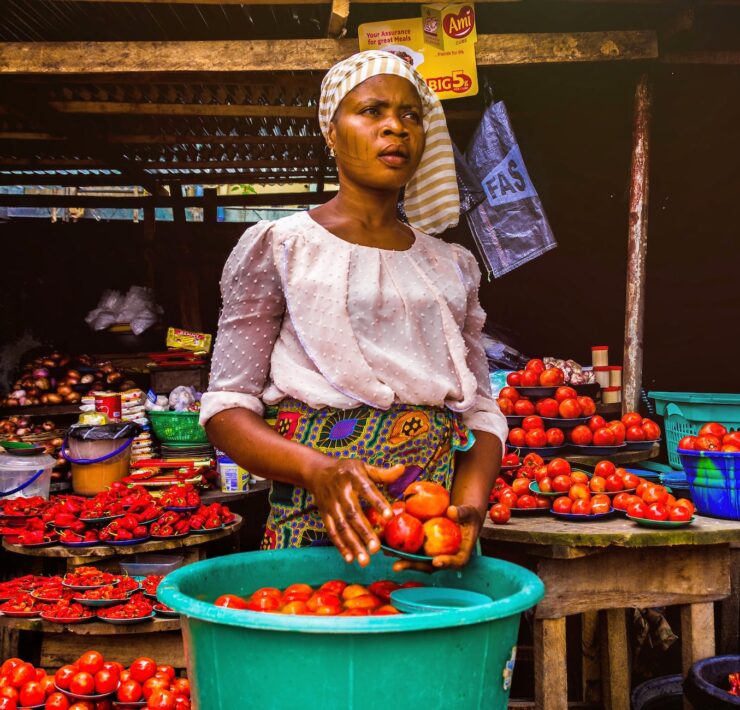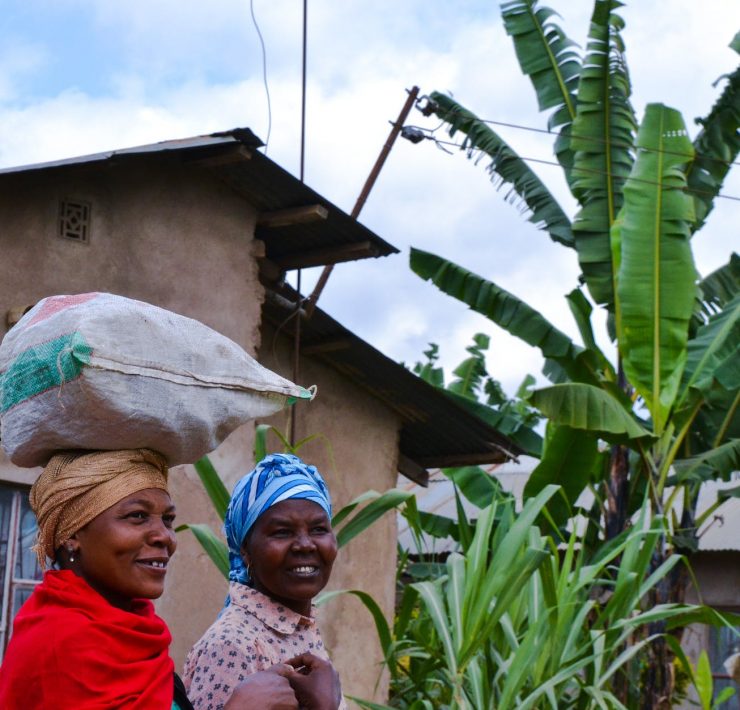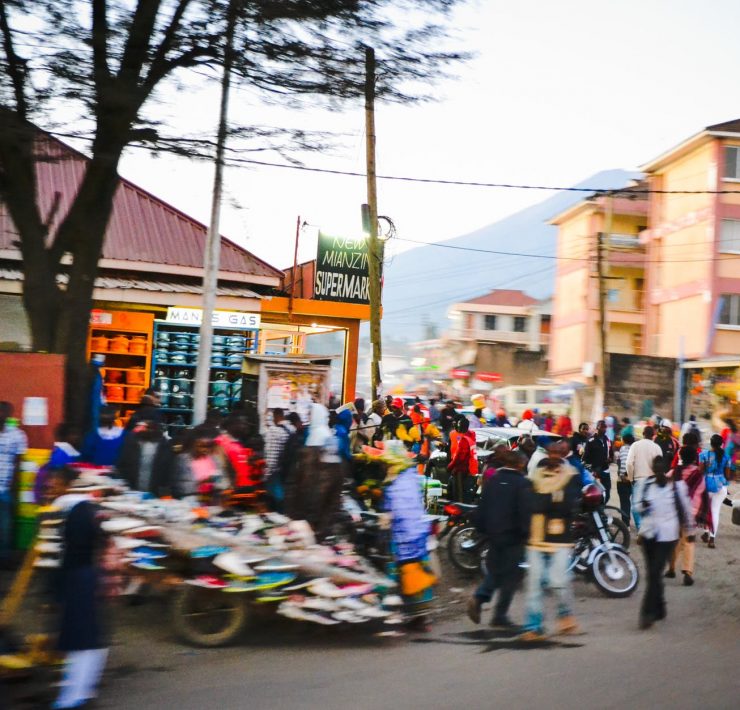Seal the Broken Pipes

Samuel Phillips is a writer, graphic designer, photographer, songwriter, singer…
SAVE YOURSELF THE TROUBLES
Personally, I try to see and live life from a very simple and non-complex angle, coupled with an attitude that tries to see things from their core rather than from what they appear to be. Simple and non-complex, not because things actually come in simple and non-complex forms, but because I try to see them as simple and non-complex.
So you will forgive me if I sound to you very naive about the issues of life, especially if you are one of those who try to look very industriously serious with life, with what you do, just so you can create an out of this world narrative about yourself for others to see and for whatever other reasons you may have.
I live in Afrika, I see Afrikans everyday, I relate with Afrikans everyday, I hear Afrikans everyday, both the ones that are really striving daily to make something beautiful out of their lives by strategic and conscious workings towards their goals; and then the ones that complain all day long about what is not available for them and how limiting it is to live in Afrika, coupled with the never ending story of greener pastures somewhere in some countries outside of Afrika.
I try to look into the various narratives that I hear or come in contact with, and then I realize something profound, we as Afrikans have not learnt to seal our leaking pipes through which our resources, money, gifts, talents, ideas are being drained. I will use an analogy to explain my point.
I live in the beautiful Nairobi area. Because I live here and see things every day, my analogy will be about the things I have seen in Nairobi.
Mind you, I am not using Nairobi in my analogy out of any biases or prejudice, but because I live and see things here.
I love walking in the mornings to both exercise my body and also to pray, meditate and prepare my mind for what God may be saying to me and for what I need to get done in my day. When I take my morning walks, its not unusual for me to see fresh water flowing wastefully from broken public water pipes. I mean multiple broken water pipes over a not too big area. I see these wastages and then try in my mind to accommodate the various news stories you hear in the media about how there is shortage of water in Nairobi and how the ministry for water resources is using rationing to help assuage the situation.
Kudos to them for at least finding a way to help a very critical situation, but is it possible to actually look out for the various avenues through which the not-too available water is protected from wastage though the blocking of the broken pipes? Let me leave you to think about that.
The issue of wastage in Afrika
I only used the issue of water shortage in Nairobi due to wastage as an illustration of a bigger problem we have in Afrika, which is, the wastage of our natural resources, skills, talents and the many other things we waste.
I was reading a paper about a new business concept that has the power and potential to unseat capitalism which is an over-stretched and non-favorable-to-the-common-man business model. In that paper, the author ,Father Anselm Adodo, wrote something about the culture of waste that we have in Afrika. Here is an excerpt from some of the things he wrote
“To change the business model we have to ask the question,
“How does nature do it?”.
Nature has an incredibly efficient business model. There is no waste in nature, no pollution and no unemployment. Nature prevents erosion, maintains soil fertility, pollinates, and balances pests and populations. It maintains life cycles and genetic diversity at productivity levels far beyond any human-made technology.
In nature, any substance is always a resource for a new process of regeneration. Any good policy has to start with an understanding of waste. In fact, with the understanding that waste does not exist. Nature does not produce waste. In nature, any substance is always a resource for a new process in never-ending loops of regeneration. A tree drops its leaves which are converted through armies of species including earthworms, ants, fungi, micro-organisms into humus – soil – which blended with rain and bird poop feeds the tree again through the roots. The same soil that feeds the trees, maintains all life – including ours. Policies then (in science, Economics, medicine, politics etc) should not just be focused on protection of the environment; they should be focused on the regeneration of nature.
We Are Not Only Wasting Soil, But Wasting Waste
We are not only losing vital soil, the soil that we have is no longer as rich as it used to be. Research shows, for example, that in the past 50 years, potatoes have lost half their copper and iron, a third of their calcium, half of their vitamin C, and almost all their vitamin A. You need to eat
eight oranges to get the same mount of vitamin A as your grandparents from one orange. We continue to price food by weight whereas the real value comes from the nutritional content that depends on the quality of the soil.”
My thoughts
So clearly, we are losing touch with what really matters and chasing after things that don’t matter and for which we need to start blocking our broken pipes if we want salvage what we have remaining and also our future.
Bring it home
There is lots of stuff in our daily life to talk about and also relate to this issue of wastage and the act of blocking broken pipes. Take for instance, a middle class earner in Kenya who earns let’s say a 100,000 shillings to 200,000 shillings a month (USD 1,000 – 2,000). He lives with his family of one wife and two kids in a supposed middle class apartment that costs about 60 to 70,000 Shillings per month, he buys his food (mostly processed and sometimes GMOs) from shopping malls that he pays unnecessary extra money for. He takes his family for weekend eat-out where he will spend no less than 3000Shillings for junk that will land him or his family in the hospital a few months down the road and somehow if you care enough to ask him, he will tell you he is servicing a loan for the fine car he brought his family to the mall with.
Not to go into too much detail, let me ask you a question, do you know how much it is to buy a KFC 2 kiddie chips, nuggets and a piece of chicken with every 9 piece bucket in Nairobi? The answer is 1800Kshillings.(About 18USD). Have you considered how much a 50kg bag of cement in the same Nairobi is and how many bags of cement will be required to build a 2, 3 bedroom bungalow and maybe a shop?
See the below cost analysis I got online.
Cement cost takes an average of 35% of the total cost of construction of an average house basing on a low cost finish overall estimate of KES 20,000per m2. This is approximately KES 7,000 per m2.
The amount of cement used in total for an average 3 bedroomed residential house of 100m2 in plinth area is 958 bags at a cost of KES 691,000 basing on a price of KES 720 per 50kg bag.
A square meter of building in Kenya will use 9.6 bags.
2 BEDROOMED FLAT.
The average 2 bedroomed house in a middle class area such as Ruaka, Rongai, Kitengela, Ruai is approximately 60m2 in plinth area. This translates to 60m2 x 9.6bags=546bags costing KES 414,000.
A block of 2 bedroomed flats in the middle class neighborhoods standing on a 1/8th acre can contain 20 units. This means the total cement used will be 20 units x 546bags per unit=10,920 bags costing 7,800,000 KES.
SHOPS AND SINGLE ROOMS 10ft by 10ft.
The average 10ft by 10ft room used as a shop or single room residence is approximately 10m2 in plinth area. This translates to 10m2 x 9.6bags=96bags of cement costing KES 69,100.
From the above cost analyses, for every bucket of KFC chips, nuggets and a piece of chicken with every 9 piece costing 1800Kshillings, approximately two and a half bags of cement is lost.
So you see what I mean by blocking the broken pipes?
And mind you, I am not saying or using this KFC and cement analogy so that everyone can go and start building houses because the price of cement and chicken and chips are the same, but to point out to someone who is reading that, almost all the time, the things that waste our resources and for which we remain not very productive are the very things we think are important for ourselves and our families but which are not.
Seal the broken pipes
We all have things that seem nice to our eyes and pleasurable to our minds, but which are often nothing but avenues through which we waste resources. And to say the truth, resources that are not regenerated by active investment will soon get depleted and poverty will naturally set in. For in my mind I am thinking, why can’t the middle class man that is earning 100,000Ksh live in an apartment of 30,000Ksh instead of an apartment of 70,000Ksh and then as he grows in his resources, he also grow in his spending? Just my thoughts and opinion as always.
What broken pipe do you need to seal?
There are lots of broken pipe situations all around us and to which many are not paying attention and by that they are overwhelmed with life.
Take for instance, the governments in Afrikan countries like to make economic policies that always undermine their own economies and their people. For example, what business does Nigeria have importing petroleum products from overseas when she is one of the largest producers of crude oil in the world. Why are her four refineries, which were built with billions of dollars, not working? Why does she have to extract her crude oil, export it at lower cost only to re-import the same product at higher costs and then later complain of poverty? It does not make jack sense.
Why do we export cocoa beans at embarrassingly cheap prices only to import chocolate at prices meant only for luxury goods? It still does not make sense why we are not making ways to increase the value of our export goods.
Why should a couple borrow money or take a loan to do an unnecessarily expensive wedding that is just for one day and then live under the weight of debt into many years of their marriage? It does not make sense to me.
Why waste money on what will only last for a day and then live in pain for years. Redefinition of priority is key.
And these are some of the broken pipes that we allow to run our resources to depletion and then break down and cry that Afrika is not growing.
The question is this, who or what is Afrika outside of the Afrikans themselves?
Meaning that for Afrika to grow, Afrikans must know that it is they themselves that must grow. And it begins with taking charge to block our broken pipes and stop wasting resources.
Like Dr Jack Githae asked in one of our interviews with him, do we really have any system in place that helps us know if the resources we say are vast are not actually depleting?
What's Your Reaction?
Samuel Phillips is a writer, graphic designer, photographer, songwriter, singer and a lover of God. As an Afrikan content creator, he is passionate about creating a better image and positive narrative about Afrika and Afrikans. He is a true Afrikan who believes that the true potential of Afrika and Afrikans can manifest through God and accurate collaborations between Afrikans. Afrika is the land of kings, emperors, original wisdom, ancient civilizations, great men and women and not some road-side-aid-begging poor third world continent that the world finds joy in undermining.


















